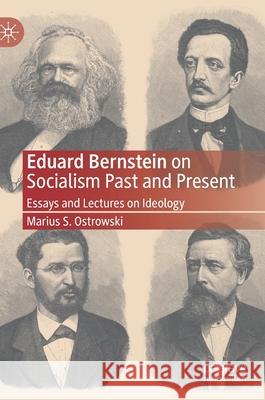Eduard Bernstein on Socialism Past and Present: Essays and Lectures on Ideology » książka
topmenu
Eduard Bernstein on Socialism Past and Present: Essays and Lectures on Ideology
ISBN-13: 9783030504830 / Angielski / Twarda / 2021 / 722 str.
Eduard Bernstein on Socialism Past and Present: Essays and Lectures on Ideology
ISBN-13: 9783030504830 / Angielski / Twarda / 2021 / 722 str.
cena 402,53
(netto: 383,36 VAT: 5%)
Najniższa cena z 30 dni: 385,52
(netto: 383,36 VAT: 5%)
Najniższa cena z 30 dni: 385,52
Termin realizacji zamówienia:
ok. 22 dni roboczych.
ok. 22 dni roboczych.
Darmowa dostawa!
Kategorie BISAC:
Wydawca:
Palgrave MacMillan
Język:
Angielski
ISBN-13:
9783030504830
Rok wydania:
2021
Wydanie:
2021
Ilość stron:
722
Waga:
1.01 kg
Wymiary:
21.01 x 14.81 x 3.96
Oprawa:
Twarda
Wolumenów:
01
Dodatkowe informacje:
Wydanie ilustrowane











